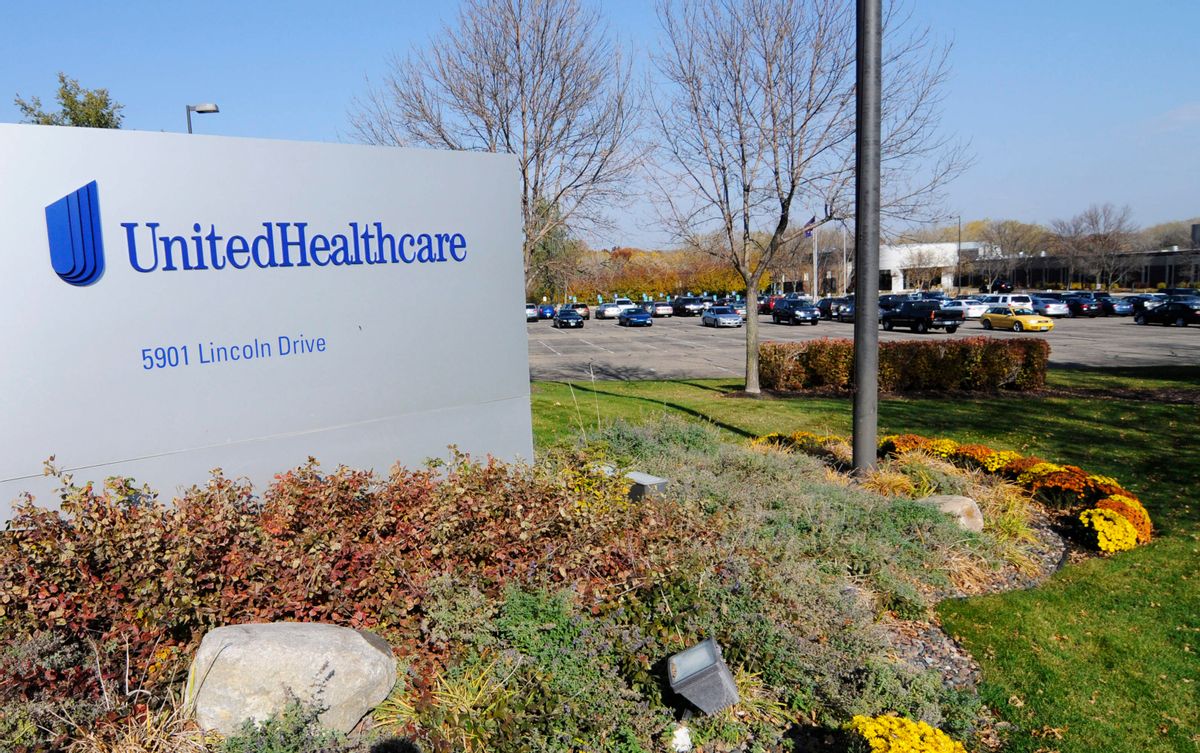The Justice Department on Tuesday accused giant insurer UnitedHealth Group of overcharging the federal government by more than $1 billion through its Medicare Advantage plans.
In a 79-page lawsuit filed in Los Angeles, the Justice Department alleged that the insurer made patients appear sicker than they were in order to collect higher Medicare payments than it deserved. The government said it had “conservatively estimated” that the company “knowingly and improperly avoided repaying Medicare” for more than a billion dollars over the course of the decade-long scheme.
“To ensure that the program remains viable for all beneficiaries, the Justice Department remains tireless in its pursuit of Medicare fraud perpetrated by healthcare providers and insurers,” said acting U.S. Attorney Sandra R. Brown for the Central District of California, in a statement announcing the suit. “The primary goal of publicly funded healthcare programs like Medicare is to provide high-quality medical services to those in need — not to line the pockets of participants willing to abuse the system.”
Tuesday’s filing is the second time that the Justice Department has intervened to support a whistleblower suing UnitedHealth under the federal False Claims Act. Earlier this month, the government joined a similar case brought by California whistleblower James Swoben in 2009. Swoben, a medical data consultant, also alleges that UnitedHealth overbilled Medicare.
The case joined on Tuesday was first filed in 2011 by Benjamin Poehling, a former finance director for the UnitedHealth division that oversees Medicare Advantage Plans. Under the False Claims Act, private parties can sue on behalf of the federal government and receive a share of any money recovered.
UnitedHealth is the nation’s biggest Medicare Advantage operator covering about 3.6 million patients in 2016, when Medicare paid the company $56 billion, according to the complaint.
Medicare Advantage plans are private insurance plans offered as an alternative to traditional fee-for-service option.
Medicare pays the health plans using a complex formula called a risk score, which is supposed to pay higher rates for sicker patients than for people in good health. But waste and overspending tied to inflated risk scores has repeatedly been cited by government auditors, including the Government Accountability Office. A series of articles published in 2014 by the Center for Public Integrity concluded that improper payments linked to jacked-up risk scores have cost taxpayers tens of billions of dollars.
Tuesday’s court filing argues that UnitedHealth repeatedly ignored findings from its own auditors that risk scores were often inflated — and warnings by officials from the Centers for Medicare & Medicaid Services (CMS) — that it was responsible for ensuring the billings it submitted were accurate.
UnitedHealth denied wrongdoing and said it would contest the case.
“We are confident our company and our employees complied with the government’s Medicare Advantage program rules, and we have been transparent with CMS about our approach under its unclear policies,” UnitedHealth spokesman Matt Burns said in a statement.
Burns went on to say that the Justice Department “fundamentally misunderstands or is deliberately ignoring how the Medicare Advantage program works. We reject these claims and will contest them vigorously.”
A spokesman for CMS, which has recently faced congressional criticism for lax oversight of the program, declined comment.
Central to the government’s case is UnitedHealth’s aggressive effort, starting in 2005, to review millions of patient records to look for missed revenue. These reviews often uncovered payment errors, sometimes too much and sometimes too little. The Justice Department contends that UnitedHealth typically notified Medicare only when it was owed money.
UnitedHealth “turned a blind eye to the negative results of those reviews showing hundreds of thousands of unsupported diagnoses that it had previously submitted to Medicare, according to the suit.
Justice lawyers also argue that UnitedHealth executives knew as far back as 2007 that they could not produce medical records to validate about 1 in 3 medical conditions Medicare paid UnitedHealth’s California plans to cover. In 2009, federal auditors found about half the diagnoses were invalid at one of its plans.
The lawsuit cites more than a dozen examples of undocumented medical conditions, from chronic hepatitis to spinal cord injuries. At one medical group, auditors reviewed records of 126 patients diagnosed with spinal injuries. Only two were verified, according to the complaint.
The Justice Department contends that invalid diagnoses can cause huge losses to Medicare. For instance, UnitedHealth allegedly failed to notify the government of at least 100,000 diagnoses it knew were unsupported based on reviews in 2011 and 2012. Those cases alone generated $190 million in overpayments, according to the suit.
While Medicare Advantage has grown in popularity and now treats nearly 1 in 3 elderly and disabled Medicare patients, its inner workings have remained largely opaque.
CMS officials for years have refused to make public financial audits of Medicare Advantage insurers, even as they have released similar reviews of payments made to doctors, hospitals and other medical suppliers participating in traditional Medicare.
But Medicare Advantage audits obtained by the Center for Public Integrity through a court order in a Freedom of Information Act lawsuit show that payment errors — typically overpayments — are common.
All but two of 37 Medicare Advantage plans examined in a 2007 audit were overpaid — often by thousands of dollars per patient. Overall, just 60 percent of the medical conditions health plans were paid to cover could be verified. The 2007 audits are the only ones that have been made public.
CMS officials are conducting more of these audits, called Risk Adjustment Data Validation, or RADV. But results are years overdue.



Shares